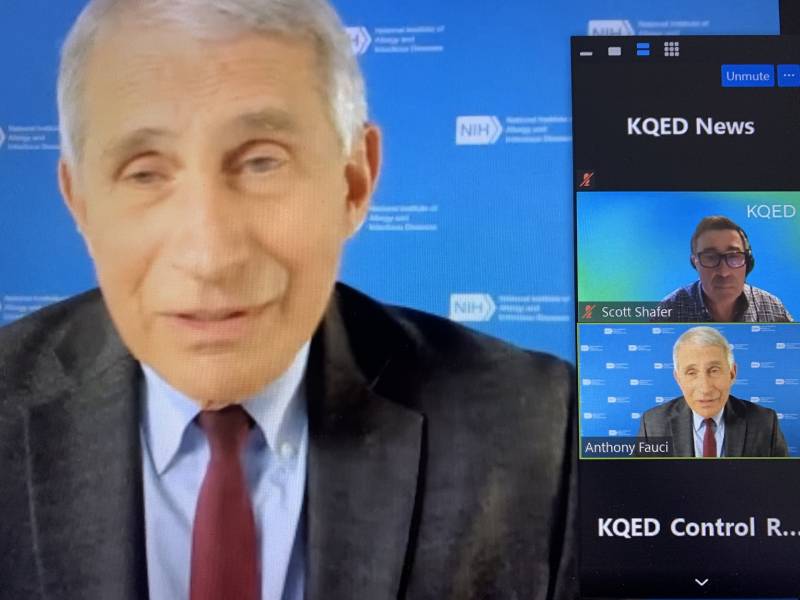Dr. Anthony Fauci, director of the National Institute of Allergy and Infectious Diseases, joins Marisa Lagos and Scott Shafer to discuss California’s new regional stay-at-home order, the politicization of vaccines and the “spectacular” advances in their development, and lessons he learned from fighting the HIV/AIDS epidemic. Then, San Francisco Chronicle health reporter Erin Allday joins to discuss the new statewide order and how public health guidance has evolved since the spring.
Here are some highlights from our interview with Dr. Fauci:
On California’s new shelter-in-place order
Fauci, the nation’s leading infectious disease specialist, enthusiastically supports Gov. Gavin Newsom’s new order, which calls for regional shutdowns of some businesses and other activities once ICU hospital bed capacity drops to 15%.
Fauci said he consulted with California health authorities ahead of the announcement, and called it “a prudent and correct decision.”
“The reason is that you are all on a brink, literally on the threshold of getting the almost unimaginable situation of getting the health care system overrun. You just can’t let that happen. That is unimaginable and unacceptable,” Fauci said. “I spoke to some of his health people and I said I would back them in that decision. So I certainly back what the governor’s doing.”

